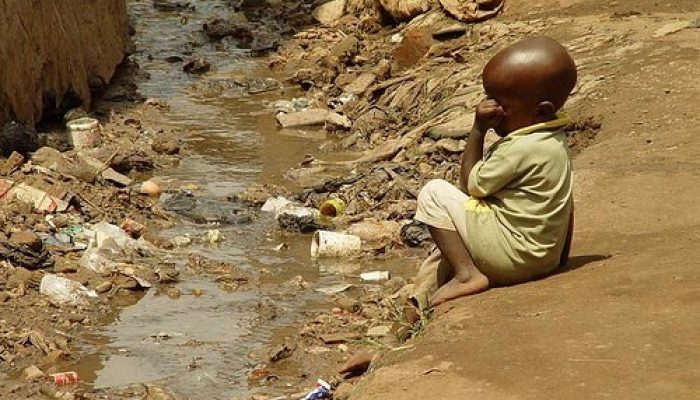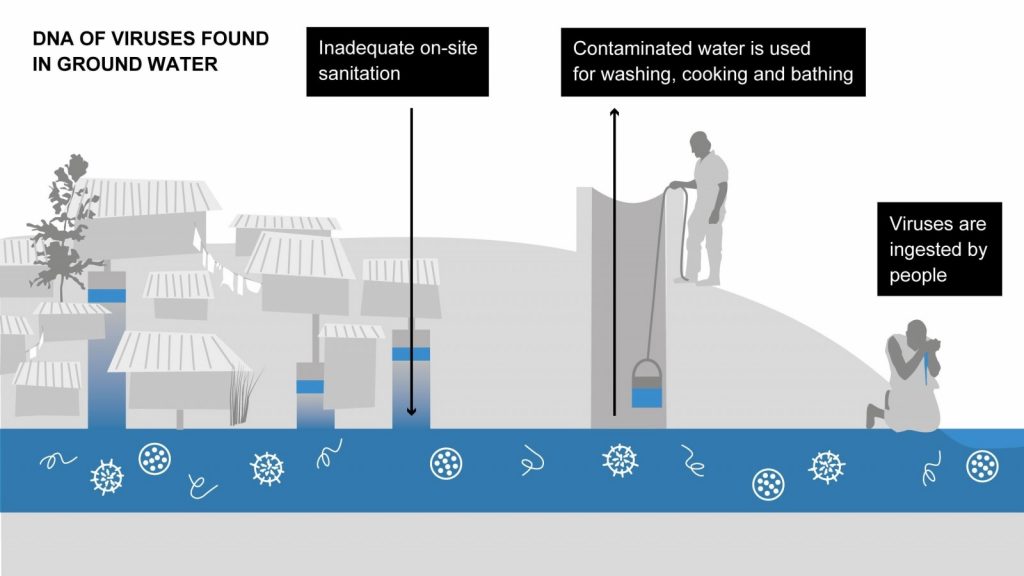
In many parts of Sub-Saharan Africa, groundwater springs are a vital, precious source of water. They are also a reservoir of disease. Research presented at the European Geosciences Union General Assembly in Vienna reveals that groundwater reservoirs in Ghana, Tanzania and Uganda contain diverse communities of viruses – including those that present a risk to human health.
The work, carried out by IHE Delft in the Netherlands and a number of local universities, is the first to find such extensive virus communities in groundwater. Amongst the 25 virus families found were pox and herpes viruses, responsible for a number of skin infections. Papillomavirus, which causes several types of cancer, was also present in the water. And this is just a fraction of what’s likely to be out there – other methods are likely to reveal many more, scientists involved with the new research say.
According to the new findings, the reason for this plethora of pathogens is poor sanitation in areas where freshwater percolates down from the surface and recharges the groundwater supply. Here, the viruses persist for several years before being discharged at the surface.

The virus communities were identified by extracting DNA from the groundwater. This graphic shows how they enter the groundwater and the local population. Credit: IHE Delft
Better sanitation and safe water supplies are needed to address the issue, but there aren’t always enough resources to tackle both. In areas like Kampala (Uganda) as much as 60% of the population relies on groundwater as a source of water. Simply switching to another source is not an option – there are none available.
In Accra (Ghana) and Kampala – groundwater systems are quite confined, covering an area that closely matches the distribution of the community. This means you can use a local approach to groundwater management, and develop something that works well for the communities living there.
Hydrogeolologist Jan Willem Foppen and his team take time to learn from the community, identifying pathways for the future together – an approach called transition management. Each pathway leads to small interventions, that the team can learn from. “When you work with a community and co-create knowledge, you get beautiful and unexpected results,” says Foppen.
For Foppen, the enthusiasm of the local population towards this approach is one of the most rewarding parts of the job: “we see this being replicated in other communities in Ghana and in Kampala, that is the biggest compliment we can get.”
This is still much to uncover about these virus communities. For example, scientists don’t yet know whether the viruses are dead or alive. 70% of the DNA found in the springs was unidentifiable. What’s more there is a whole separate group of viruses – RNA viruses – that haven’t even been studied yet.
By Sara Mynott, EGU Press Assistant



